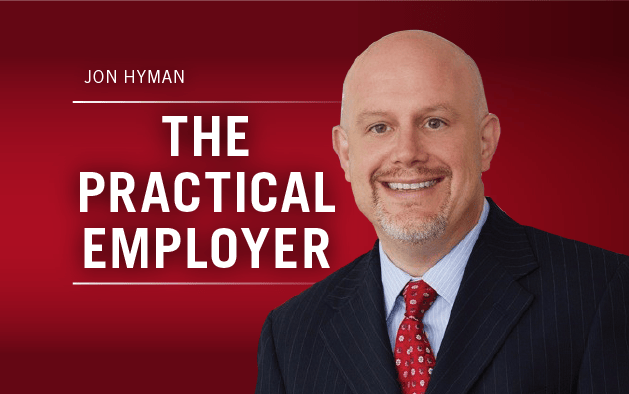Commentary & Opinion
A Cautionary Tale on Why We Background Check Employees
By Jon Hyman
May. 2, 2019
Here is a cautionary tale on why employers should conduct thorough background checks on employers.
In late 2013, Kristl Thompson, Ashley Raby and Corbie Leslie filed a lawsuit against the Scott Fetzer Co. (doing business as “The Kirby Company”), Crantz Development, and John Fields. The women claimed Fields had sexually assaulted them (including verbal abuse and harassment, inappropriate touching, forced sexual acts, and rape) on numerous occasions between May 2012 and January 2013. A number of these allegations resulted in felony and misdemeanor convictions against Fields.
Fields had worked on and off since the 1970s for Crantz (a factory distributor of Fetzer-manufacured Kirby vacuums) as an independent dealer of Kirby vacuums. Over his decades of work, he had been charged with numerous criminal offenses, including embezzlement, unlawful imprisonment, domestic abuse, and rape.
In their civil lawsuit, the women claimed that Fetzer and Crantz were negligent in hiring Fields and allowing him to go on sales trips with them. The women also asserted claims against Fetzer alone for negligently failing to take appropriate precautions to prevent its independent contractors from hiring employees like Fields, and for negligent supervision of its independent distributor in its hiring practices.
The women alleged that after receiving Fields’s application to become a Distributor Trainee, Kirby conducted a limited background check on Fields, which showed that Fields had lied about his prior criminal record. They further alleged that had Kirby conducted a national search instead of a regional search, it would have discovered his criminal record was much more substantial than he disclosed (including rape). Nevertheless, with knowledge that “Fields had spent almost a year in jail for beating up his wife in 2000, and despite the fact that Kirby knew that Fields lied about his criminal record, Kirby approved Fields to be a Distributor Trainee.”
A year later, Fields applied to become a Factory Distributor. According to the women, Fields “again lied about his criminal record and Kirby again learned of his criminal record.” Despite again learning about Fields’s criminal past, “Kirby approved Fields’ application to become a Factory Distributor.” In the following years, Fields continued to commit crimes, including “forcible rape, first degree domestic violence, unlawful imprisonment, and assault.” While Fields was awaiting trial in the forcible rape case, Kirby learned that he had defrauded elderly customers. That crime appears to have been the tipping point for Kirby, and it terminated his factory distributorship.
Yet, after Fields’ release from prison in February 2012, Kirby rehired him, and he began selling their vacuums again. It was during this period of employment that he sexually assaulted Thompson, Raby, and Leslie.
I pulled these horrible facts from The Scott Fetzer Co. v. Great Am. Ins. Co. (6th Cir. 4/30/19) [pdf], an insurance coverage dispute relating to the long-since-resolved underlying claims brought by Thompson, Raby, and Leslie.
I hope, however, we can all spot the mistakes made here in screening and hiring Fields.
-
- It’s no longer acceptable to limited criminal background checks on employees locally or regionally. Our society is mobile, and the background checks we are conducting on potential hires should reflect this mobility by being national in scope. Almost all criminal records are available online, and there is really no excuse to do anything other than a national search.
- When you discover that an employee has lied about their criminal background, the only resolution is termination. The employment relationship is all about trust, and when that trust is broken the relationship is irreparably damaged.
- I’m all for second chances and redemption, but an individual with a history of rape and domestic abuse is un-hireable. Convince me otherwise.
- Why rehire someone after they are released from prison for rape, especially with all of this back story? This fact is the most head-scratching of them all.
There was little chance this story was going to have a happy ending. Let’s all learn from it by reviewing our own background screening and hiring processes.
Schedule, engage, and pay your staff in one system with Workforce.com.
